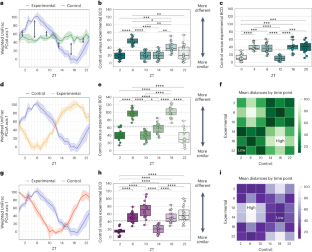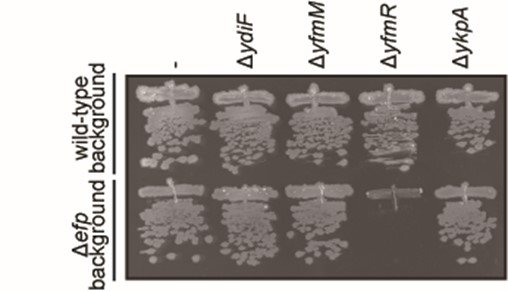2024-07-01 カリフォルニア大学サンディエゴ校(UCSD)
<関連情報>
- https://today.ucsd.edu/story/new-findings-may-fix-the-replicability-crisis-in-microbiome-research
- https://www.nature.com/articles/s42255-024-01064-1
マイクロバイオーム解析の再現性にはサンプル採取時期が重要である Time of sample collection is critical for the replicability of microbiome analyses
Celeste Allaband,Amulya Lingaraju,Stephany Flores Ramos,Tanya Kumar,Haniyeh Javaheri,Maria D. Tiu,Ana Carolina Dantas Machado,R. Alexander Richter,Emmanuel Elijah,Gabriel G. Haddad,Vanessa A. Leone,Pieter C. Dorrestein,Rob Knight & Amir Zarrinpar
Nature Metabolism Published:01 July 2024
DOI:https://doi.org/10.1038/s42255-024-01064-1

Abstract
As the microbiome field moves from descriptive and associative research to mechanistic and interventional studies, being able to account for all confounding variables in the experimental design, which includes the maternal effect1, cage effect2, facility differences3, as well as laboratory and sample handling protocols4, is critical for interpretability of results. Despite significant procedural and bioinformatic improvements, unexplained variability and lack of replicability still occur. One underexplored factor is that the microbiome is dynamic and exhibits diurnal oscillations that can change microbiome composition5,6,7. In this retrospective analysis of 16S amplicon sequencing studies in male mice, we show that sample collection time affects the conclusions drawn from microbiome studies and its effect size is larger than those of a daily experimental intervention or dietary changes. The timing of divergence of the microbiome composition between experimental and control groups is unique to each experiment. Sample collection times as short as only 4 hours apart can lead to vastly different conclusions. Lack of consistency in the time of sample collection may explain poor cross-study replicability in microbiome research. The impact of diurnal rhythms on the outcomes and study design of other fields is unknown but likely significant.


